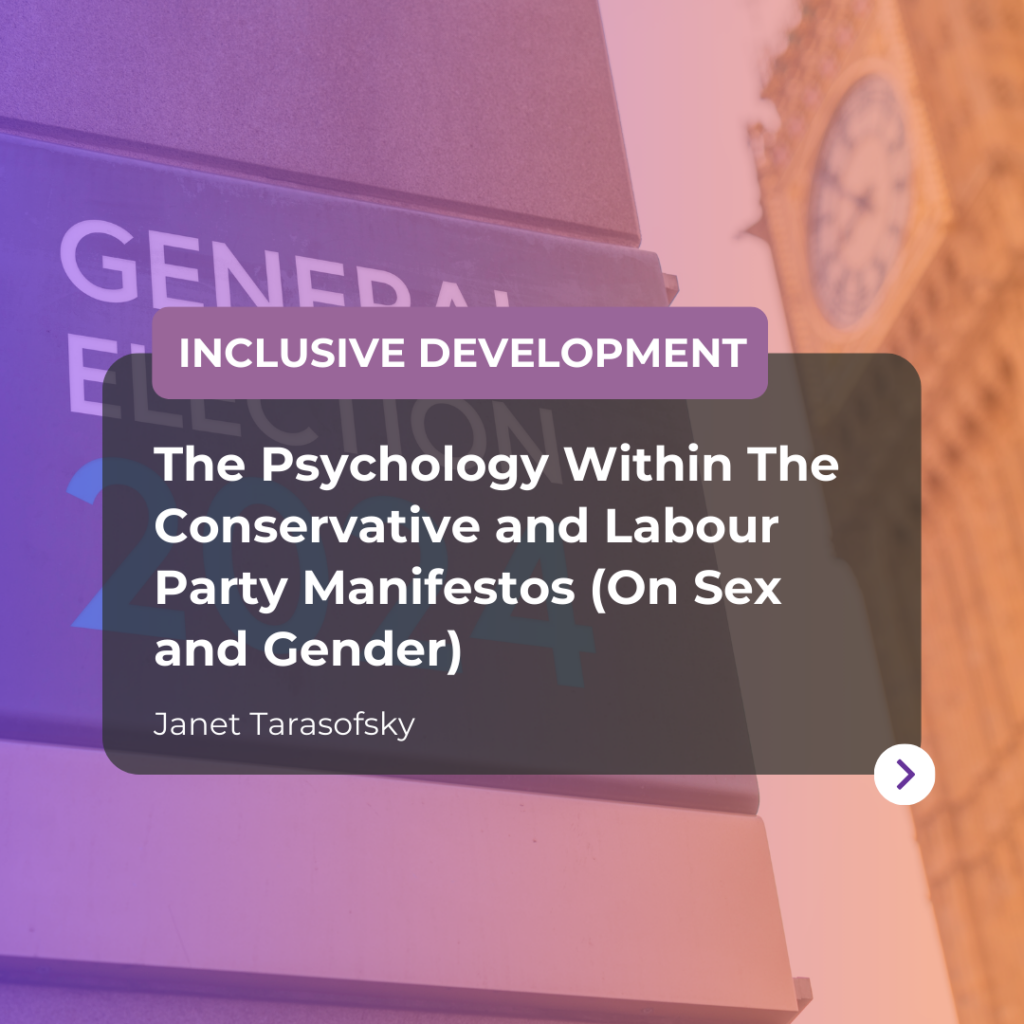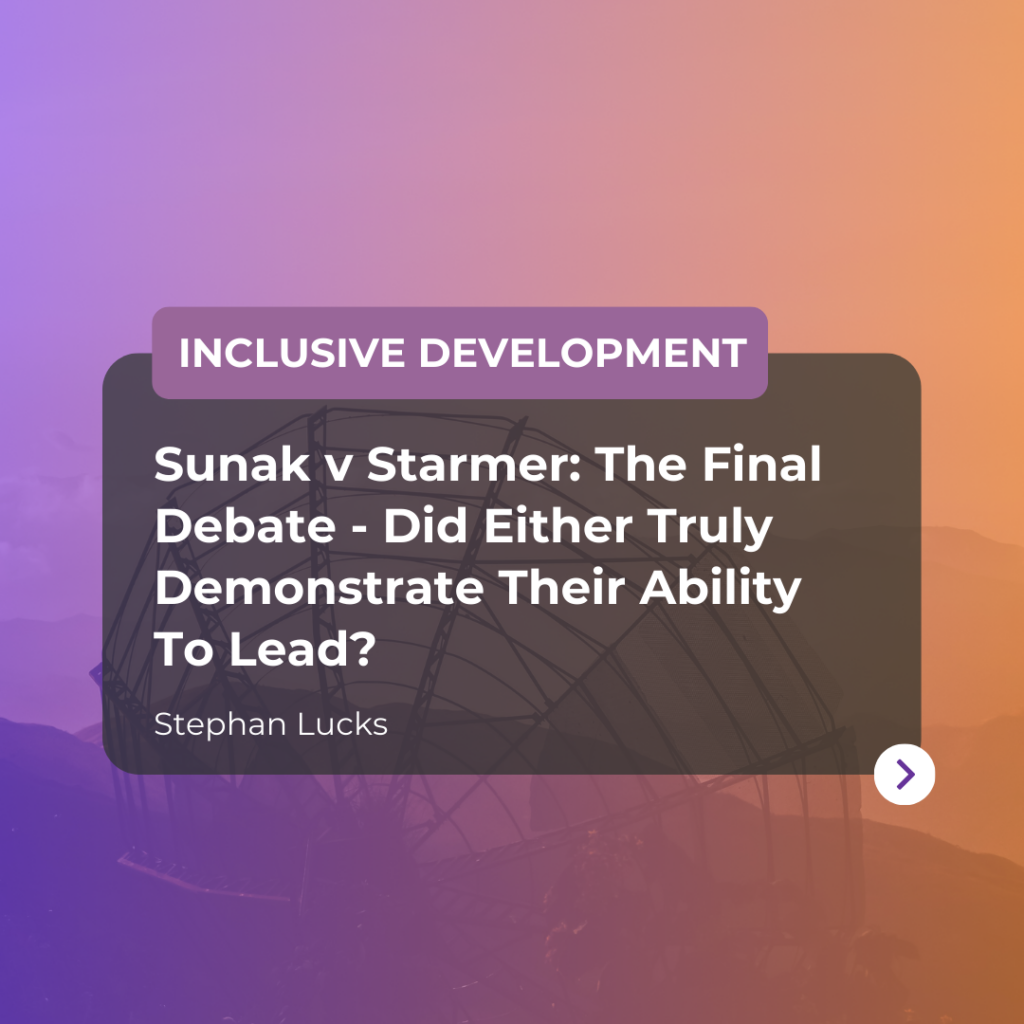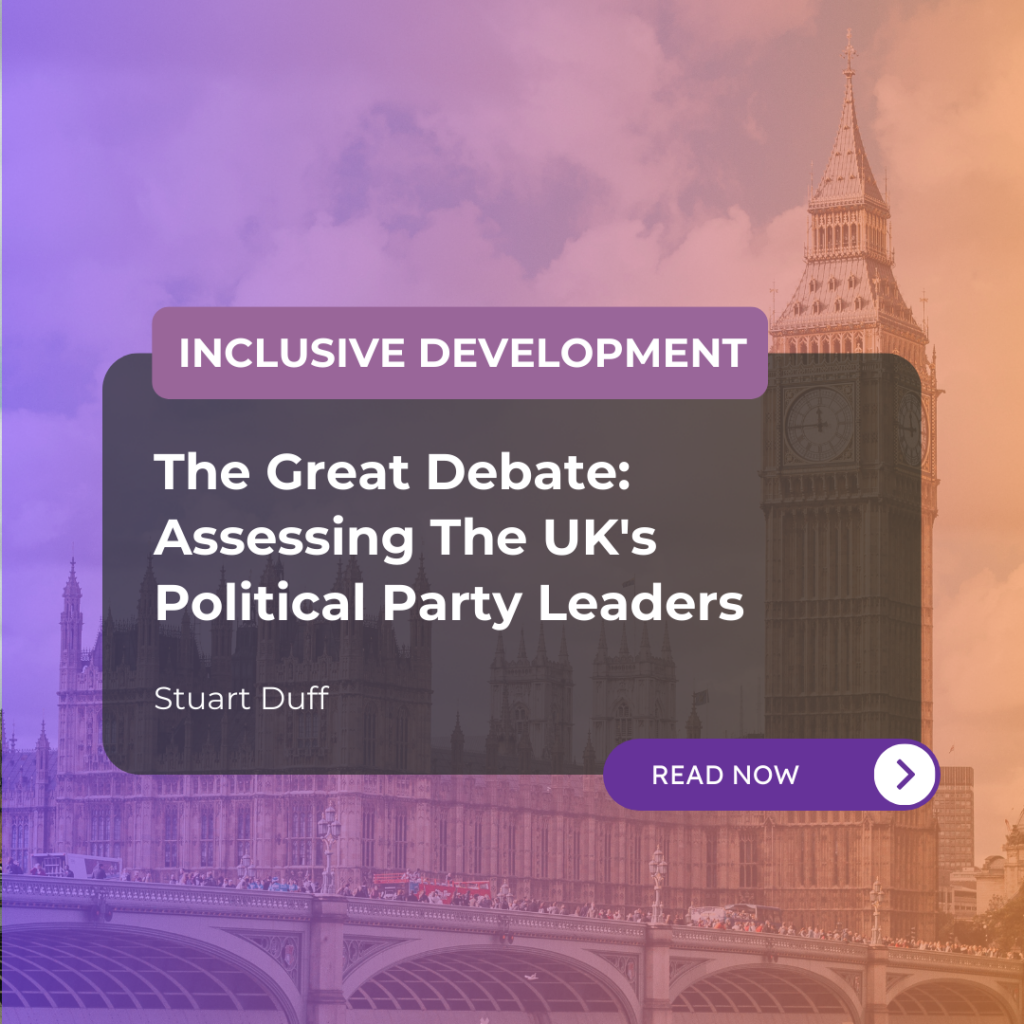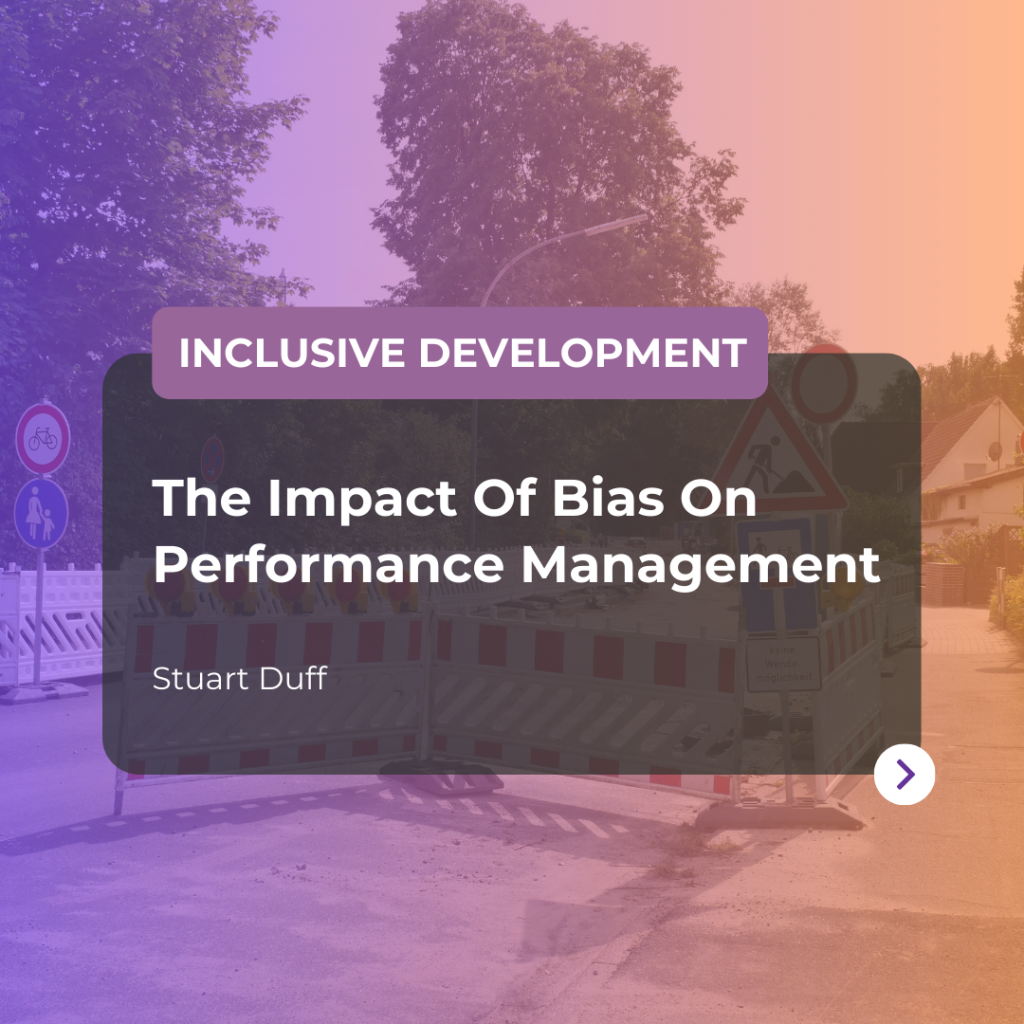The General Election Campaign: Where are we?
We are now officially halfway through the campaign trail for the 2024 General Election here in the UK. We’ve had the manifestos from the major parties, various political debates and only a few significant gaffes along the way. So far, not so good.
But what impression do we have of the two main contenders to lead the country for the next five years? What behaviours are they displaying that will reassure us or undermine our confidence?
As a reminder, we set out to compare the leadership styles of the leaders of the major parties by using the head-to-head political debates as the main forum for comparison.
We used a simple leadership competency rating scale:
- Capability to deliver results (expresses plans and views with clarity and conviction, is decisive, emphasises commitment to deliver on policies, is clear and consistent throughout the debate)
- Positive personal impact (tone and body language align to words, communicates in a trustworthy way, is authentic, genuine and caring, and listens carefully, considers other perspectives, and responds considerately to questions)
- Shares a clear and compelling vision of the future (communicates a vision of a more positive way of life, reminds us of what is important, is inclusive, compelling, specific and believable about what can be achieved in the future, has a vision that will appeal to a diverse audience)
We recorded any specific leadership behaviours we observed, but sadly, the list was a short one.
In our initial analysis, neither Rishi Sunak nor Keir Starmer demonstrated the core behaviours we need and should expect to see in our national leaders. The conclusion was that each leader focused on repeating particular political points and trying to devalue the opposition by talking across each other rather than considering how they could connect with the audience, demonstrate empathy or set out a compelling and positive vision for the future.
In the interim, we had a couple of rowdy debates between party leadership “representatives”, again highlighting that standing at a platform may not be the easiest way to convey a sense of leadership.
Sunak v Starmer: The Debates – Round 2
The next political head-to-head took us to Grimsby, a town that voted 70% in favour of Brexit and one of the ‘red wall’ constituencies. The party leaders were subjected to a structured one-to-one interview, followed by an open Q&A session with the audience. What did we see?
Assessment of Leadership: Keir Starmer
- Capability to deliver results: 2 Moderate
- Positive personal impact: 1 Weak
- Shares a clear and compelling vision of the future: 2 Moderate
Starmer led the Grimsby debate, and overall, he demonstrated higher levels of personal passion, vision and determination to drive change than in the previous debates. He felt more at home in this format – without another candidate interrupting or challenging him – although he maintained a stiff and inaccessible communication style, even on familiar ground.
A lawyer by background – and son of a toolmaker no less – Starmer responds to most questions in a factual but rehearsed and unengaging manner. He is more direct and confident in his communication but is lengthy and detailed in his answers without always directly answering the questions posed. Starmer is starting to over-rely on a limited number of responses relating to working people, but they are quickly becoming clichés. He needs greater self-awareness and more options for empathising with the audience.
An audience member described his impact as that of a ‘political robot’ and observed that Starmer doesn’t ever answer the question. Starmer struggled to respond. He has a strategy of starting to talk about an issue without knowing how to answer the question directly. This results in over-engineered and meandering responses, a quality that undermines trust and causes frustration rather than builds confidence in his leadership ability.
Starmer uses his experience in the PSNI and the CPS to underline his leadership credentials. He can take on the gangs, address the tough issues, and drag his party back to success. He emphasises that he does not fear the big decisions and works very hard to list examples of changes that he has led that will connect with the audience.
Regarding vision, Starmer consistently uses the word ‘plan’ to emphasise the clarity of the steps that will lead to change. He contrasts the big plan with immediate steps, suggesting that he has a vision with very concrete actions. The disappointing part is the communication of the vision. Once again, he uses too many words and not enough concise and clear language to engage his audience.
Assessment of Leadership: Rishi Sunak
Competency scores:
- Capability to deliver results: 2 Moderate
- Positive personal impact: 1 Weak
- Shares a clear and compelling vision of the future: 1 Weak
Overall, Rishi Sunak was clear, consistent, and assertive in his responses to the Q&A but limited in his range of responses. He lacks vision and imagination when discussing solutions for the future and instead emphasises his personal determination to fix problems.
Sunak is nothing if not earnest and genuine in his aims, but it often seems that he is the only member of the Cabinet and will run every department should he be restored to power. A critical element of leadership is taking personal responsibility without alienating yourself from the team you are leading. Sunak’s responses overemphasise what he will personally deliver, which hints at being isolated or detached from many in his Cabinet.
Sunak seemed irritable and defensive at times in his responses. He used phrases such as “Of course, I know things are not easy,” which suggests that he was facing repeated challenges from the audience without having a compelling answer. His lack of calmness hints at uncertainty and, perhaps, tiredness from carrying out much of the campaign on behalf of his party.
Sunak consistently demonstrates specific and detailed knowledge but in a way that does not resonate with the audience. He is not afraid to speak directly and assertively, but he has to realise that he is repeating the same answer, yet they are still not landing. Sunak emphasises facts, rules and details in every response, as though the electorate votes purely on cool logic. While many will use logic, we know that voting intention is shaped as much by personal values and trust – emotions – than by fact.
General Election Debate 2: The Verdict
Interestingly, this interview format has allowed us to see more of the natural person behind the title of Party Leader. Putting the leaders behind a rostrum takes them into the familiar barracking of the Wednesday lunchtime PMQs rather than allowing them the space and interaction with the voting audience. The Q&A format allowed us to see a broader range of responses and behaviours from each leader, with Starmer edging the outcome.
That being said, I am still holding out hope that we will see both candidate’s full personalities and leadership qualities by the time of the final debate.
Until then, I would highly encourage you to sign up for Professor Binna Kandola OBE’s special election webinar on July 2nd, where he’ll be leveraging his 40+ years of shaping business leaders around the globe to assess the leadership profiles of Rishi Sunak and Keir Starmer.








